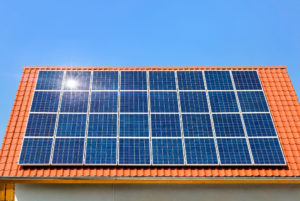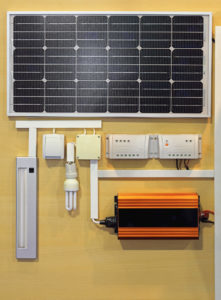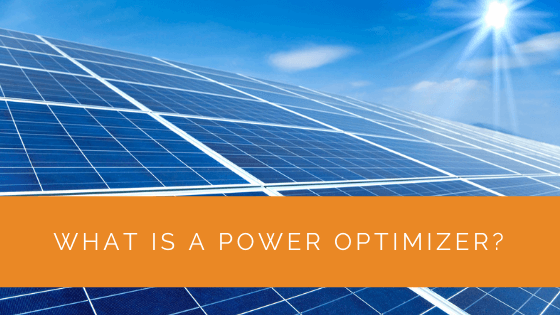Solar power is a clean and renewable power source. Not only are solar panels an environmentally friendly way of generating the electricity needed to power a home, but they can also reduce energy costs. Homeowners who invest in solar power can expect to see a total return on their investment in a few years.
With that said, homeowners will need to make some important decisions when installing solar panels on their homes. The power that solar panels produce is direct current (DC) electricity. It must be converted to alternating current (AC) electricity before it can be utilized in the home.
Solar panel systems need to use an inverter capable of converting the generated electricity into usable power.
Contents
- 1 Key Takeaways
- 2 What Is a Power Optimizer Inverter?
- 3 How Does a Power Optimizer Inverter Work?
- 4 What Are the Benefits of Power Optimizers?
- 5 String Inverters Vs. Micro-Inverters Vs. Optimizers
- 6 Case Study: Enhancing Solar Panel Efficiency with Power Optimizers
- 7 Expert Insights From Our Solar Panel Installers About Power Optimizers
- 8 Experience Solar Excellence with Us!
- 9 Conclusion
Key Takeaways
- Power optimizers are electronic modules installed on individual solar panels that improve the efficiency and performance of solar panel systems, particularly in challenging conditions like shade or poor weather.
- These optimizers can monitor and condition the electricity generated by each panel before sending it to an inverter, increasing the overall power output and enabling real-time panel performance tracking.
- Power optimizers offer advantages over string inverters and microinverters, providing a cost-effective solution to enhance the efficiency and reliability of solar panel systems while avoiding the high costs of microinverters.
What Is a Power Optimizer Inverter?
Power optimizer inverters are one of several types of inverters available to homeowners. An electronic module known as an optimizer is installed on each individual solar panel. These modules can condition electricity before it is sent to the inverter, which can significantly improve the system’s effectiveness.
When the optimizers are in place, it’s also possible to monitor and enhance the performance of each panel. It can essentially convert your solar panels into smart panels that you can monitor and track through an app.
Not only can modules increase energy output in challenging conditions, like in poor weather or when panels are partially blocked by shade, but they can provide you with information about panel performance in real-time.
How Does a Power Optimizer Inverter Work?
While solar panel systems can be very effective, anything that limits the function of individual panels, like shade, can significantly impact the system’s output. With a standard setup, the panel with the lowest performance dictates how much electricity the system can generate.
Power optimizer inverters can improve the performance of each panel. Power optimizer modules make it possible to track the peak output that a panel is generating. This electricity is then conditioned before it’s sent to an inverter, dramatically increasing the amount of power that is produced.
Since optimizers can regulate the voltage of every panel on a roof, every panel can improve its performance. These modules can mitigate the effects of shade and even improve the performance of panels that have been damaged in some way.
Optimizers can make a solar panel system more efficient and more effective, especially when shade or other factors impact some panels’ performance.
Additionally, optimizers are able to send the information they collect about the output and peak efficiency of panels to the cloud. This allows you to monitor the performance of your system closely.
If there are issues with the performance of your system, you’ll be able to address them early on. Maintenance costs are likely to rise if the damage isn’t addressed. By reacting quickly, you’ll be able to keep your system in excellent shape while spending less.

What Are the Benefits of Power Optimizers?
Power optimizers can enhance the efficiency of panels, even in conditions that are less than ideal. Solar panel systems often see a decrease in performance when panels have different angles or when some panels are shaded throughout the day. With power optimizers, the output of these panels can be greatly increased.
Optimizers also make it possible to monitor the performance of panels in real-time. This makes it possible for homeowners to identify and address issues with panels early on. Not only does this increase time, but it can also reduce the money spent on repairs and maintenance.
When optimizers are installed, solar panel systems have higher energy yields and are more reliable. Even if a module fails, the panel it’s secured to will continue to generate electricity. Optimizers can improve the effectiveness of your system while also increasing its lifespan.
String Inverters Vs. Micro-Inverters Vs. Optimizers
In addition to power optimizer inverters, there are two other inverter options for solar panel systems: string inverters and microinverters. All three types of inverters are capable of converting DC electricity generated by solar panels into AC electricity. However, there are key differences between these components.
String inverters wire together every panel and direct the energy that they produce to a single inverter. While this can be an effective solution, the system’s energy yield will be dictated by the panel with the worst performance. If even a single panel is shaded or damaged in some way, it can dramatically impact the output of the entire system.
In contrast, microinverters work by installing a small inverter on each individual panel. The DC energy produced by those panels is immediately converted into AC power. While this solves any issues created by the worst performing panel in a system, it’s an expensive solution that can be difficult to maintain.
Power optimizers send power to a single inverter as string inverters do. However, they’re also able to improve performance on a single panel level like microinverters can. They’re an ideal option for homeowners who want a more efficient system but want to avoid the high costs of microinverters.

Case Study: Enhancing Solar Panel Efficiency with Power Optimizers
Background
At Solar Panels Network USA, we recently tackled a residential project in a suburban area where shading from neighboring trees significantly reduced solar panel efficiency during peak sunlight hours.
Project Overview
The homeowner approached us seeking a solution to optimize energy production without the expense of microinverters. Our team recommended installing power optimizers on each panel to mitigate shading effects and improve overall system performance.
Implementation
We strategically placed power optimizers on all panels affected by shade, ensuring each module could independently maximize output without compromising neighboring panels’ performance. This setup allowed us to maintain a balanced energy flow throughout the system.
Results
Following installation, the homeowner noticed an immediate increase in daily energy production, even on partly cloudy days. Real-time monitoring through the optimizers’ app revealed consistent panel performance improvements, validating the effectiveness of the solution.
Summary
By leveraging power optimizers, Solar Panels Network USA not only optimized the homeowner’s solar panel system but also provided a cost-effective alternative to microinverters. This case underscores the importance of choosing the right technology to enhance solar energy systems’ efficiency and reliability, ensuring sustainable energy solutions for years to come.
Expert Insights From Our Solar Panel Installers About Power Optimizers
As seasoned solar installers, we’ve found that power optimizers revolutionize solar panel systems by enhancing efficiency and performance in challenging conditions. These electronic modules not only maximize energy output but also provide real-time monitoring capabilities, ensuring optimal performance even in shaded or less favorable weather conditions.
Senior Solar Installation Engineer
Power optimizer inverters are pivotal in converting DC electricity from solar panels into usable AC power efficiently. They operate by conditioning electricity at each panel, overcoming performance limitations caused by shading or panel damage. This technology transforms solar panels into intelligent systems that homeowners can monitor closely, ensuring long-term reliability and energy efficiency.
Solar System Specialist
Compared to traditional string inverters and costly microinverters, power optimizers strike a balance between performance and cost-effectiveness. By mitigating the impact of shade and panel inconsistencies, these modules improve overall system reliability and energy yield. They’re an excellent choice for homeowners seeking maximum efficiency without compromising on affordability.
Lead Solar Panel Installer
Experience Solar Excellence with Us!
Trust in Solar Panels Network USA, where our seasoned experts deliver top-quality solar solutions for homes and businesses nationwide. With a legacy of countless successful installations and a commitment to sustainable energy, we’re your reliable partner in the solar journey. Ready for a brighter, eco-friendly future? Call us now at (855) 427-0058 and harness the power of the sun!
Conclusion
Choosing the best type of inverter for your solar panel system can significantly improve its effectiveness. Power optimizers have clear advantages over alternative options. They’re a consistent and effective way to track your system and ensure that your home has the power that it needs.
About the Author
Solar Panels Network USA stands at the forefront of solar energy solutions, driven by a team of seasoned solar engineers and energy consultants. With over decades of experience in delivering high-quality solar installations and maintenance, we are committed to promoting sustainable energy through customer-centric, tailored solutions. Our articles reflect this commitment, crafted collaboratively by experts to provide accurate, up-to-date insights into solar technology, ensuring our readers are well-informed and empowered in their solar energy decisions.

